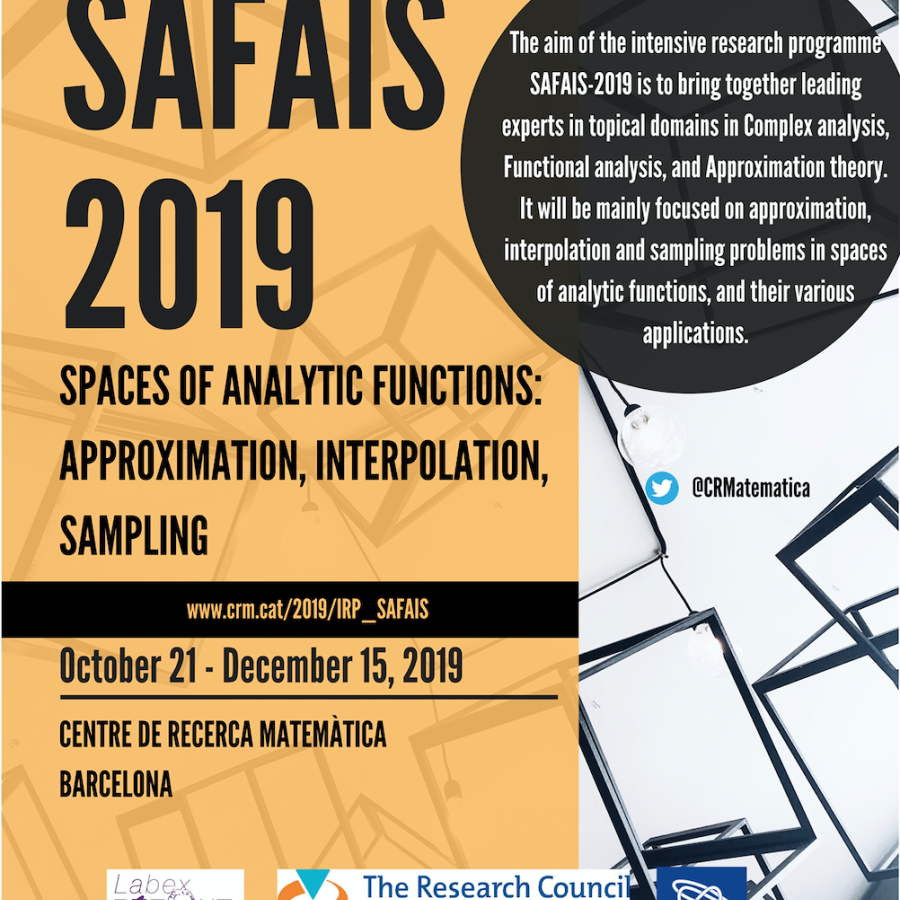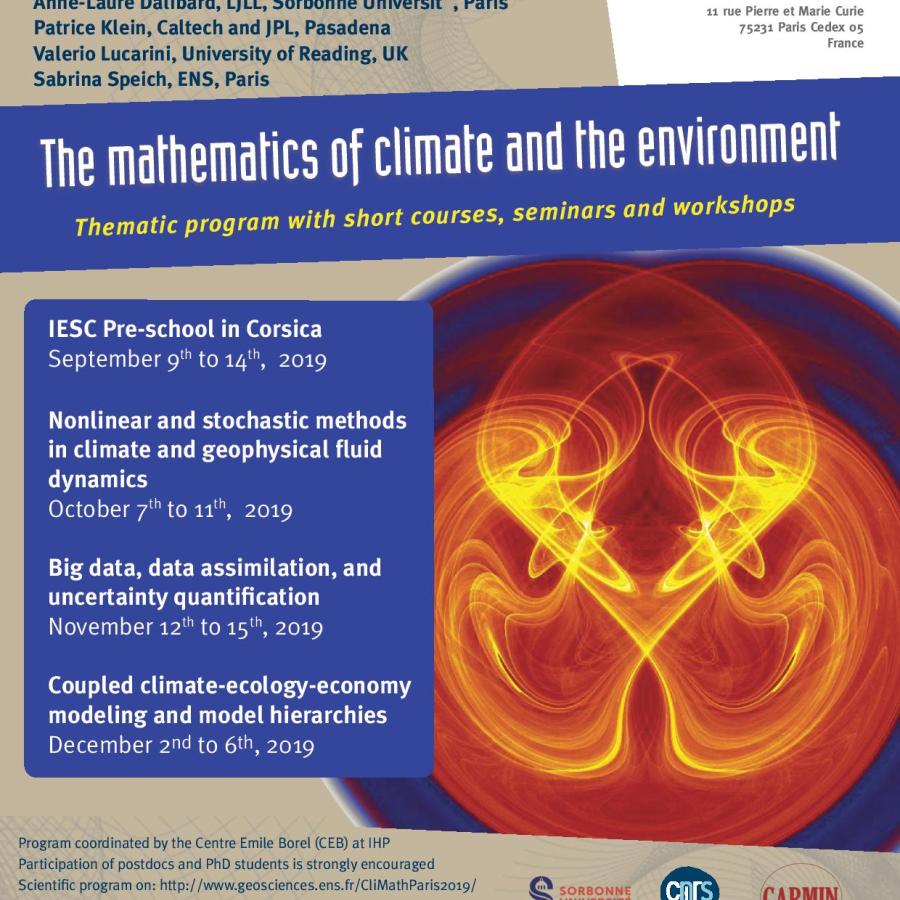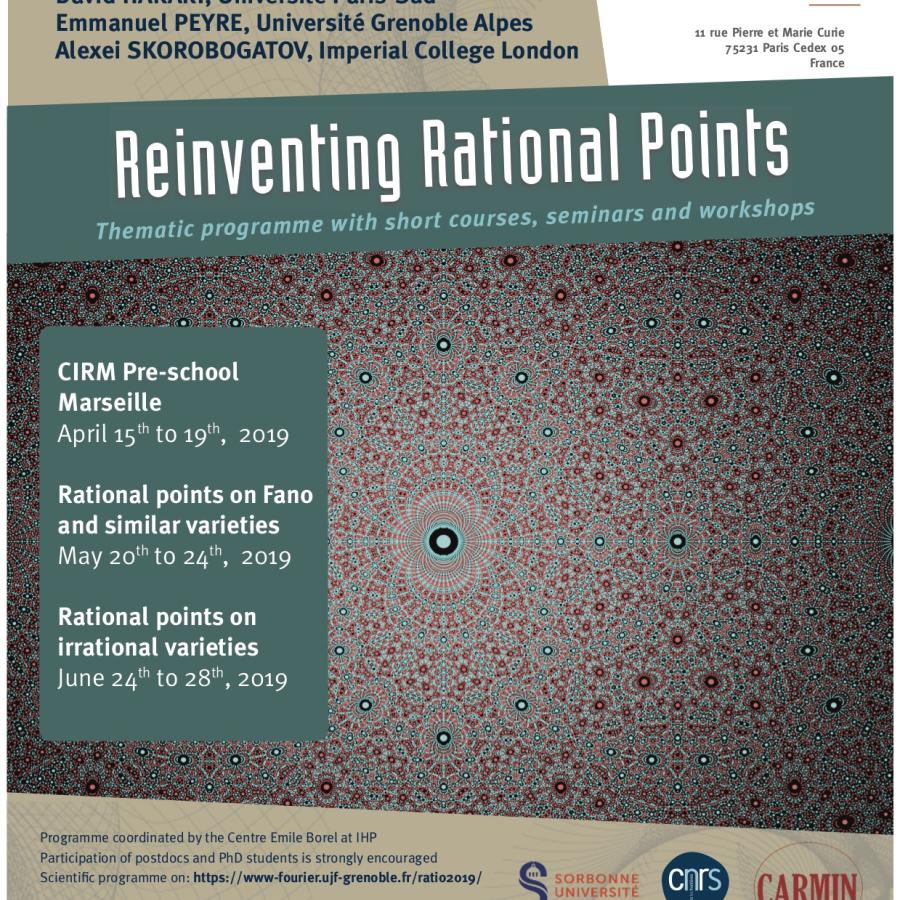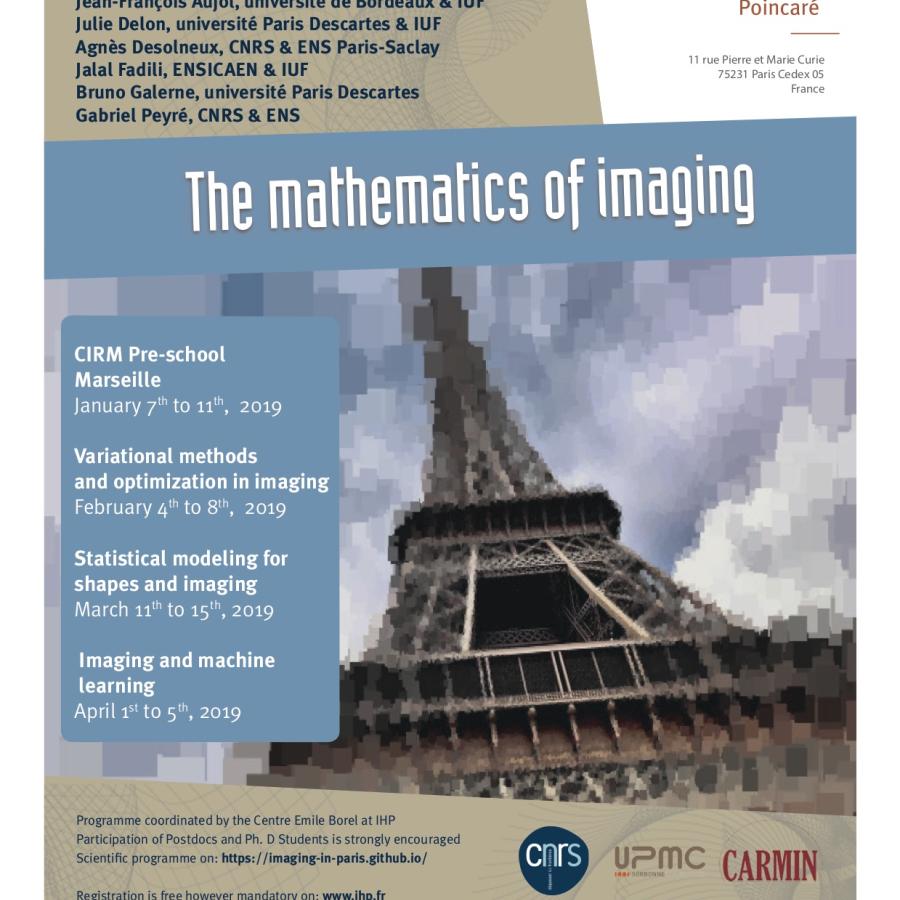The CRM opens an annual call for CRM Intensive Research Programmes (IRP) approximately two years in advance. The CRM started organising IRPs in 2003 and has held two to three per year since then. Each programme consists of a number of resident researchers, from junior to senior, and at least two scientific events (workshops, advanced courses, and conferences).
2019
The mathematics of climate and the environment
The Institut Henri Poincaré trimester “The Mathematics of Climate and the Environement” aims to explore the Climate System and the developments in mathematics that seem most promising in advancing the climate and environmental sciences.
The mathematics of imaging
The goal of this seminar is to cover the fields of the mathematics of imaging in a very wide sense (including for instance signal processing, image processing, computer graphics, computer vision, various applications and connections with statistics and machine learning)
Datamining & Machine Learning
Simplice Dossou-Gbété
Summary:






